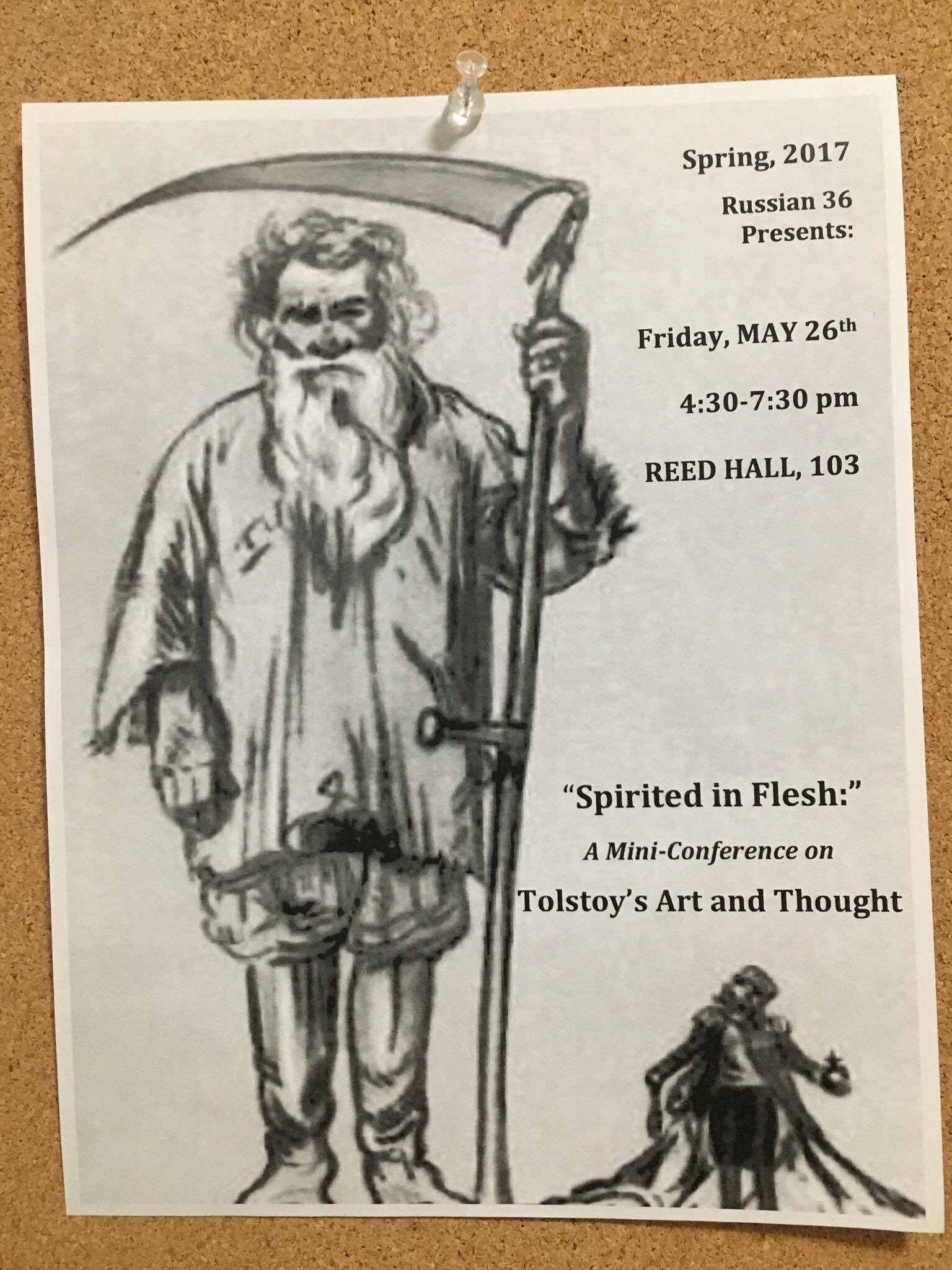Leo Tolstoy Archive
Written: 1888
Source: Translated by Nathan Haskell Dole
Transcription/Markup: Andy Carloff
Online Source: RevoltLib.com; 2021

The widow Mary a lived with her mother and six children. Their means of life were small. But they used their last money in the purchase of a red cow, so as to have milk for the children. The eldest children pastured Brownie 1 in the field, and gave her slops at home.
One-time while the mother was away from home, the oldest son, Misha, in climbing on the shelf after bread, knocked over a tumbler and broke it.
Misha was afraid that his mother would chide him. So he gathered up the large pieces of broken glass, carried them into the yard, and buried them in the dung-heap, but the little pieces he threw into the basin. The mother missed the glass, and made in- quiries ; but Misha said nothing, and so the matter rested.
On the next day, after dinner, when the mother went to give Brownie the swill from the basin, she found that Brownie was ailing and would not eat her food. They tried to give her medicine, and they called the babka. 2 The babka said that the cow would not live ; it was best to slaughter her for beef.
They called a peasant and proceeded to slaughter the cow. The children heard Brownie lowing in the yard ; they all climbed upon the oven and began to weep.
After they had slaughtered Brownie, they took off the hide and cut the carcass in pieces, and there, in the throat, they found a piece of glass. And so they knew that her death was caused by her swallowing the glass in the slops.
When Misha heard this he began to weep bitterly, and confessed to his mother that he broke the glass. The mother said nothing, but also wept. Then she said :
" We have killed our Brownie, and have nothing to get another cow with. How will the little ones live without milk ? "
Misha kept howling louder and louder, and would not come down from the oven when they ate the jelly made from the cow's head. Every time when he went to sleep, he saw in his dreams how Uncle Vasili brought the red cow by the horns, Brownie, with her wide eyes and beautiful neck.
From that time the children had no more milk. Only on holidays they had milk, for then Marya asked her neighbor for a mug of it.
It happened that the lady of that estate needed a child's nurse. And the grandmother said to the daughter :
" Let me go ; I will take the place as nurse, and maybe God will let you get along with the children alone. And if God spares me, I can earn enough in a year to buy a cow."
Thus they did. The grandmother went to the lady ; but it grew still more hard for Marya and the children. The children lived a whole year without having milk. They had nothing but kisel jelly and tiuria 3 to eat and they grew thin and pale.
After the year was over, the grandmother came home, bringing twenty rubles.
" Well, daughter," says she, " now we will buy a cow."
Marya was delighted ; all the children were delighted. Marya and the grandmother went to market to buy their cow. They asked a neighbor to stay with the children, and they asked another neighbor, Uncle Zakhar, to go with them and help them to select the cow.
After saying their prayers they went to town. In the afternoon the children kept running into the street to see if they could see the cow. They amused them- selves guessing what kind of a cow she would be red or black. They kept telling one another how they would feed her. All day long they waited and waited. They walked a verst to meet the cow, but as it was already growing dark, they turned back.
Suddenly they saw coming along the road a cart, and in it sat their grandmother, and beside the hind wheel walked a brindle cow tied by the horn, and their mother was walking behind urging her on with a dry stick.
The children ran to them and began to examine the cow. They brought bread and grass and tried to feed her. The mother went into the cottage, changed her clothes, and went out with her towel and milk-pail. She sat down under the cow and began to wipe the udder. The Lord be praised ! The cow gave milk, and the children stood around and watched the milk straining into the pail, and listened to its sound under the mother's fingers. When the mother had milked the pail half full, she carried it down cellar, and each of the children had a mug for supper.
1 Burenushka, diminutive noun from adjective burui.
2 Midwife, supposed to know something about ailments.
3 Bread soaked in kvas.